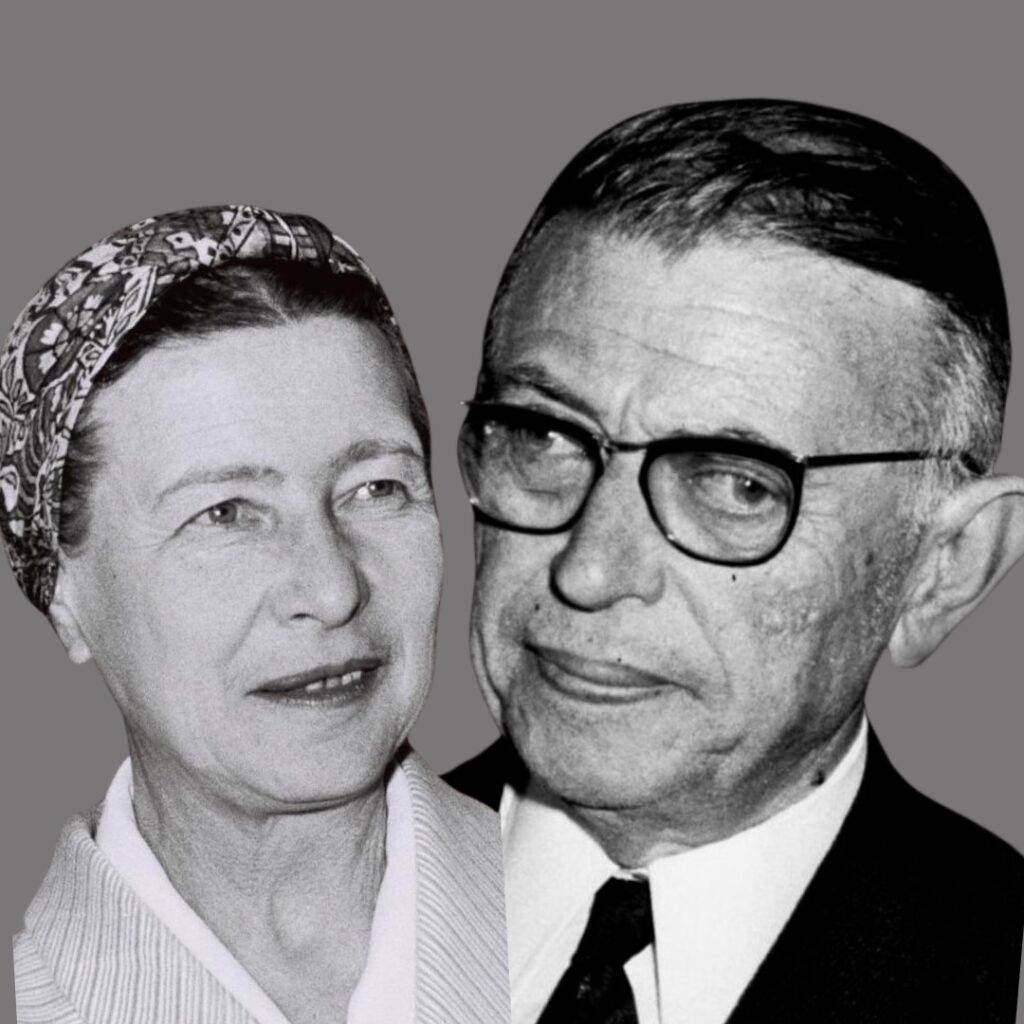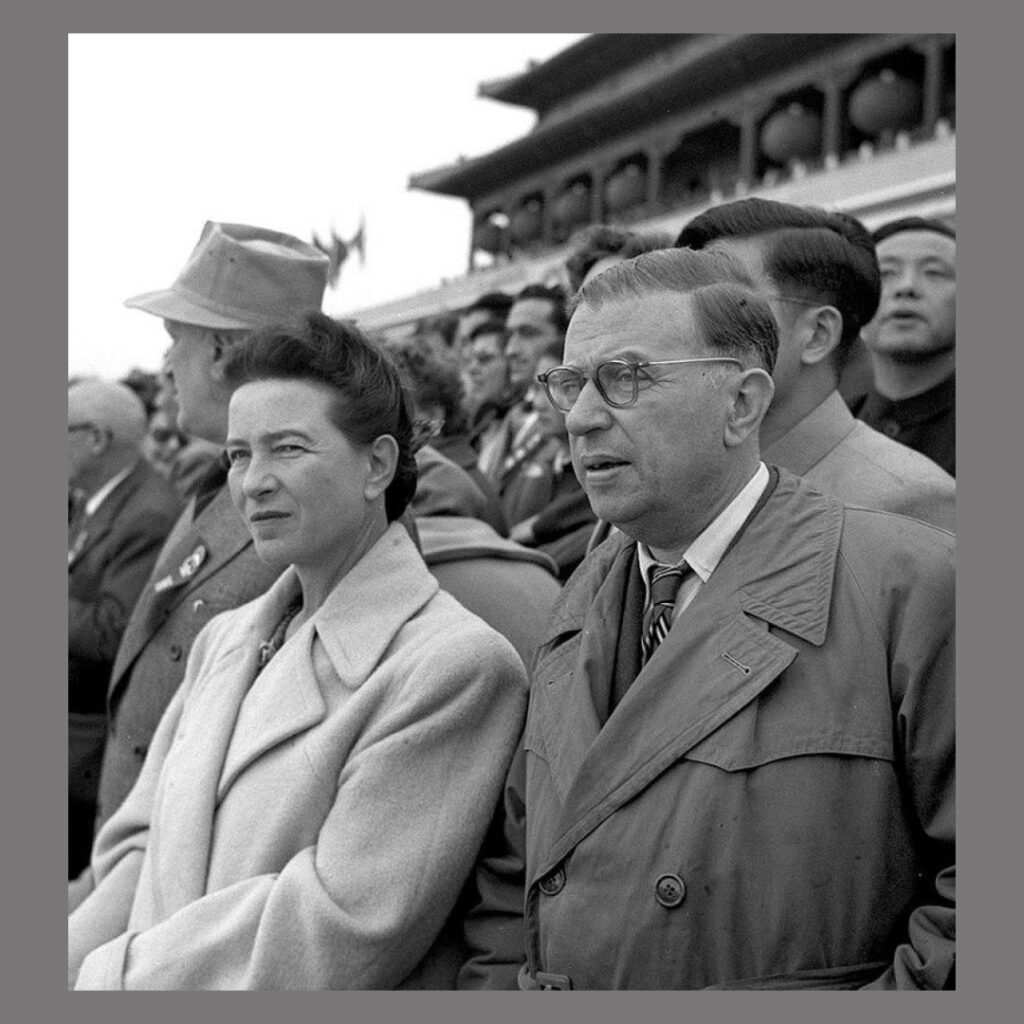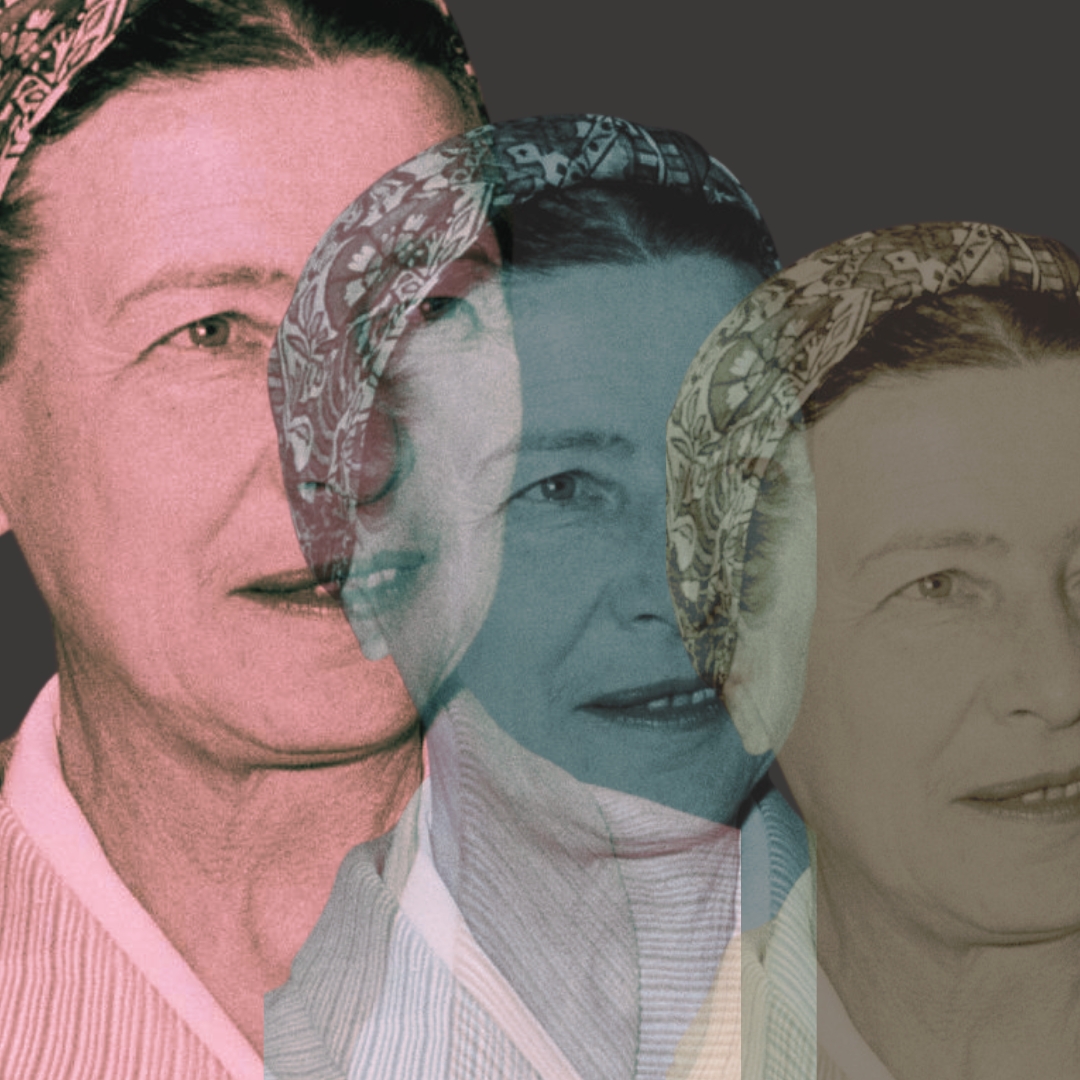Brief Introduction to Simone de Beauvoir
Simone de Beauvoir was a French writer, feminist, social theorist, and existential philosopher, celebrated for shaping feminist literature and influencing the feminist movement of the 20th century. Credited with giving women a ‘voice’, her landmark book “The Second Sex” addresses the oppression of women throughout history. Simone advocated for women’s liberation.
Continuing her fight against women’s oppression, Beauvoir wrote the controversial “Manifesto of the 343” in 1971. The book encouraged 343 women to publicly share their experiences. Unfortunately, it resulted in the legalisation of abortion in France.
Despite her feminist and pro-abortion credentials, Beauvoir’s image was deeply intertwined with that of her partner, the French existentialist Jean-Paul Sartre. However, recently unearthed correspondence has cast a troubling shadow over her ideas, revealing contradictions and behaviours that challenge her feminist status. Placing Simone de Beauvoir on a feminist pedestal today amounts to historical short-sightedness. Let’s delve deeper.
Simone de Beauvoir Reveals Her True Colours in Letters to Sartre

“To put it crudely, Beauvoir was pimping for Jean-Paul Sartre”, wrote Jeremy Stangroom, the founder of The Philosopher Magazine
Beauvoir and Sartre’s open relationship propelled them to near-mythical status both in France and internationally. However, scholars Hazel Rowley and Danièle Sallenave, after extensive investigative work, published decades of private correspondence between the couple. These letters, released posthumously (1981 and 1986), shattered the myth of an ideal relationship rooted in equality and freedom.
The letters reveal Beauvoir engaging romantically with several young female philosophy students, later introducing them to Sartre. Alarmingly, many of these students were minors. Their correspondence portrays these encounters coldly, often indicating deception and harsh dismissals when these girls were no longer useful. To put it crudely, Beauvoir was pimping for Jean-Paul Sartre—a claim supported by accounts from Bianca Lamblin, Nelson Algren, and Nathalie Sorokine.
After examining Rowley and Sallenave’s findings, the French magazine Le Point concluded: “We discover a Sartre who is sexually cold, macho, authoritarian, and jealous”, whereas Beauvoir emerges as cruel, calculating, and manipulative towards her lovers. Moreover, the letters demonstrate both Sartre’s and Beauvoir’s deep jealousy, reducing their own relationship primarily to erotic exploits—contradicting Beauvoir’s feminist critique of women’s objectification.
Simone seems to have lived by the mantra “do as I say, not as I do.“
Can We Reconcile Such Behaviour with Her Feminist Icon Status?
According to Jeremy Stangroom, founder of The Philosopher’s Magazine, Beauvoir’s letters and diaries suggest she was deeply beholden to Sartre, constantly prioritising his needs above her own. Her biographer, Deirdre Bair, had this to say about the revelations:
“I can understand the feeling of betrayal, the pain…women felt when they learned how de Beauvoir, throughout the more than 50 years they were together, put all her needs, goals and desires second to Sartre’s every impulse, how she evaded hard truths about herself like her bisexuality or the sad realities of much of her daily life, continually running errands for Sartre.” (Bair, 1990, p. 32)
Beauvoir argued that love, marriage, and family were the foundations of female oppression. Freedom for her meant avoiding emotional entanglements and serving oneself alone. This narrow and distorted view challenges her feminist legacy. Beauvoir should not be called a feminist, given her profoundly warped and unhealthy perspective on female nature. Her inconsistencies and errors extend into politics as well.
Simone Advocated Ultimate Freedom Yet Flirted with Nazism and Communism

Recent revelations also expose Beauvoir’s complacency during the Nazi occupation of France. Briefly overseeing a cultural programme on Radio Vichy, both Beauvoir and Sartre were later criticised for their silence over Stalinist atrocities.
Conclusion
Simone de Beauvoir intellectualised her neurosis and called it feminism. She was a woman desperately seeking Sartre’s approval and, in her attempt to control him, spent her life serving him—a classic example of a subservient and objectified woman. When does feminism truly flourish? It thrives when it acknowledges and respects the needs of all women. We cannot claim significant feminist progress if homemakers are largely marginalised by the feminist movement. How can we credibly discuss opposing female oppression when feminism predominantly offers workforce participation as its primary solution? Is burdening married women with a double shift—both at the office and at home—truly revolutionary?
Simone argued that we should not seek to understand men’s power but rather eliminate it. Really? Is this the society we aim to build—a society where women bear ever-increasing responsibilities while weakening men’s morale? I want to see my daughter marry a man who is as strong as she is—someone who supports her fully when she chooses motherhood over becoming a CEO. And when she wishes to return to her career, she should be able to do so freely. This has been my experience; I married a strong man, and because of that, I have always been respected. Feminism will only bear genuine fruit when it considers ALL women—and MEN as well.
